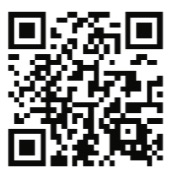Presentations led by:
Matthew Fearon, Desert Research Institute
Robyn Heffernan, National Weather Service
Mixing Height is important for assessing smoke dispersion for prescribed fires
and wildfires. This webinar will review and explain the strengths and
weaknesses of several tested methods for determining mixing heights. The
webinar will include discussion of the innovative Turbulent Kinetic Energy
(TKE) method that may provide critical atmospheric information for predicting
Dispersion. TKE represents the most robust method for determining Mixing
Height while the Stull Method represents an alternative approach that may be
more operationally feasible. The webinar will discuss both approaches for
determining Mixing Height. In addition, National Weather Service programs
for determining Mixing Height will also be described.
Questions? contactus@southernfireexchange.org
Registration required!
Or scan the QR Code:


